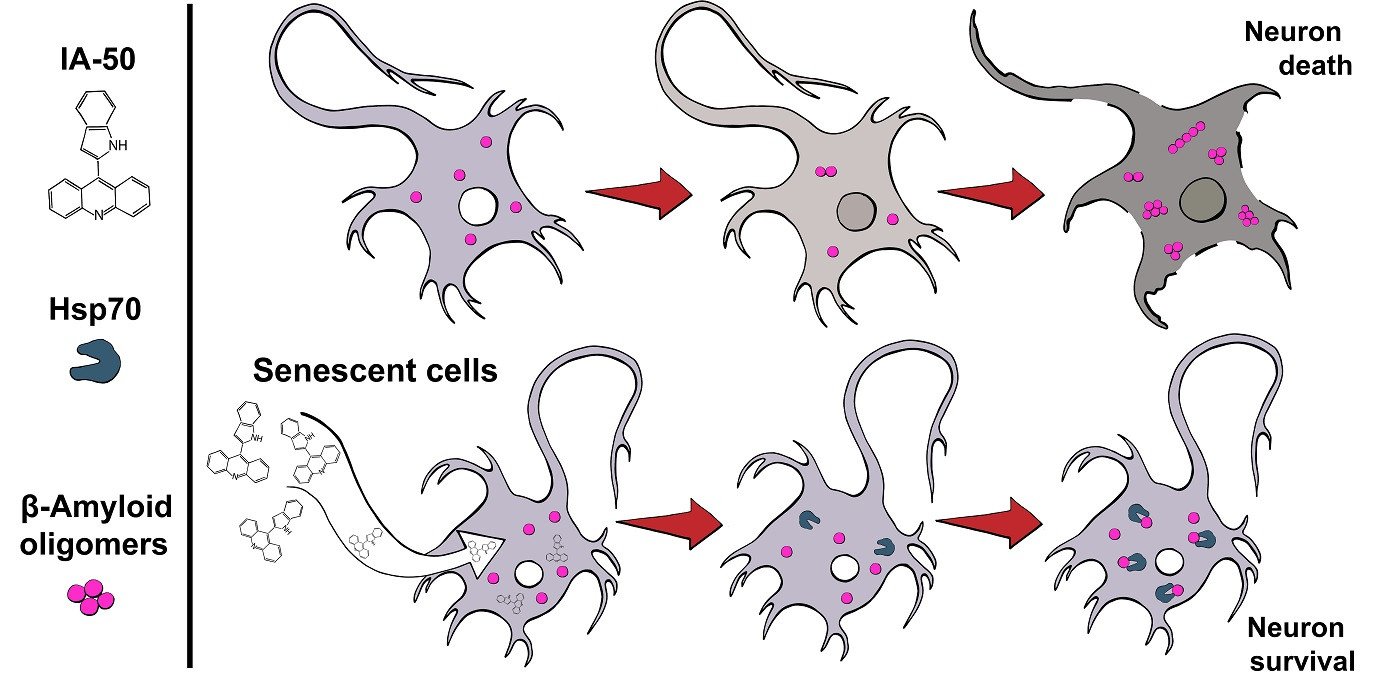Scientists have studied a drug that prevents the development of Alzheimer's disease in aging neurons

Scientists from the Institute of Cytology (INC) of the Russian Academy of Sciences have selected a compound that increases the activity of the synthesis of chaperone proteins that prevent the development of Alzheimer's disease in aging nerve cells.
The results of the study, published in the scientific journal Molecules, clarify scientists' ideas about substances promising for creating drugs for neurodegenerative diseases.
According to the World Health Organization, more than 50 million people in the world suffer from senile dementia, of which two-thirds have Alzheimer's disease (the disease is characterized by memory loss, primarily short-term). About 1 million people suffer from this disease in Russia.
If we talk about the causes of Alzheimer's disease, then today the amyloid hypothesis of the development of the disease dominates in the scientific community. According to this concept, the cause of the disease is the appearance of beta-amyloid peptide in the brain tissues with age, on the basis of which plaques are formed that are toxic to nerve cells.
The appearance of amyloid structures in the human brain leads to the death of neurons, cognitive impairment develops, memory disappears. At the same time, it is problematic to immediately identify Alzheimer's disease, since the human body has many compensatory mechanisms that prevent behavioral disorders. Therefore, now scientific groups around the world are searching for drugs to treat this disease.
“Alzheimer's disease progresses with age, and this is due, in particular, to a decrease in the amount of heat shock proteins (chaperones), among the numerous functions of which are the protection of cells from beta-amyloid. We have synthesized a new compound that causes the accumulation of chaperones in aging nerve cells,” says Vladimir Lazarev, senior researcher at the Laboratory of Cell Defense Mechanisms of the Institute of Scientific Centers of the Russian Academy of Sciences.
The substance proposed by scientists, which is called IA-50, belongs to the group of indolylazines. Previously, researchers have shown that representatives of this class of compounds activate the synthesis and accumulation of chaperones in nerve cells. Compound IA-50 was selected on the basis of computer simulation data as having the ability to easily penetrate the membranes of senescent neurons.
The experiments were carried out on several cell models: on aging and “young” human neurons obtained by reprogramming stem cells, as well as on transgenic mice with cognitive impairments caused by the development of Alzheimer's disease. Cellular materials were provided by the Center for Collective Use "Collection of Vertebrate Cell Cultures", which operates on the basis of the Scientific Research Center of the Russian Academy of Sciences.
“The results of the experiments showed that the use of the new compound activated the synthesis of chaperones and contributed to their accumulation in brain tissues, and also blocked the development of memory impairment and the formation of beta-amyloid plaques. The data obtained generally clarify our ideas about potential neuroprotectors, which in the future may form the basis for the development of drugs for the effective treatment of neurodegenerative diseases such as Alzheimer's disease,” explains Vladimir Lazarev.
Scientists from the Institute of Scientific Centers of the Russian Academy of Sciences and the Ural Federal University took part in the study.